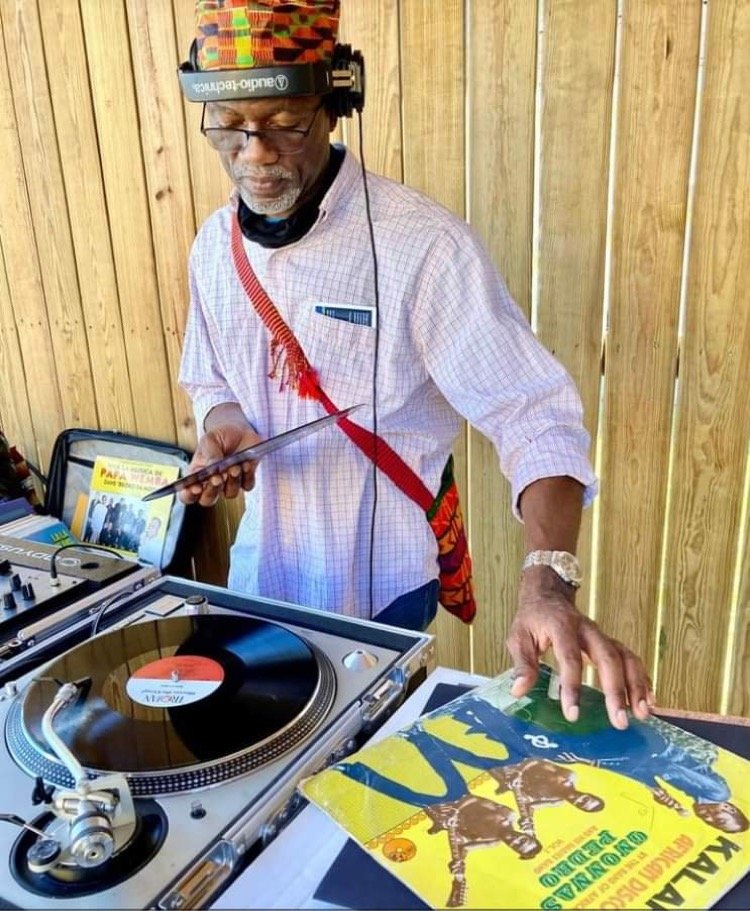La Nuit des Idées - Where are we going?
Black Lives Matter in Minneapolis
In this period of intense geopolitical upheaval in Europe and around the world, La Nuit des Idées, or the Night of Ideas, invites researchers, writers, artists and community leaders to question the theme Where Are We Going? Coordinated by the Institut Français, Night of Ideas is being presented in 100 countries worldwide, including the United States.
The event was first introduced to the US in 2015 by the French Embassy, and has now become a nationwide phenomenon, drawing tens of thousands of people to events across the country.
The murder of George Floyd, a 46-year-old African-American man who was killed during his arrest by a white police officer on May 25, 2020, caused the emotion and anger of millions of people in Minneapolis, across the United States, and around the world. His death has become a rallying cry against police brutality and a catalyst for the Black Lives Matter movement. While reinventing its forms of action, its activists continue the long history of the struggle for racial equality. Where are we going? What is the future of this movement which has become one of the most influential in the defense of civil rights?
Alliance Française Mpls/St Paul invites several speakers to consider the subject and freely exchange ideas about this important movement. Join us for this evening and participate in this conversation as well!
The event will start with the screening of the documentary ‘‘Black Lives Matter - The Making of the Mural in Minneapolis’’. On July 18, 2020, the Minnesota African American Heritage Museum and Gallery (MAAHMG) brought together 16 artists to create a Black Lives Matter mural on Plymouth Avenue N, in Minneapolis in front of the museum. The mural is in support of the fight for racial justice and the protests sparked by the killing of George Floyd. Each artist was given a letter to create their own unique design. Hear from the artists about their inspiration for their artwork and the message that Black lives do matter. This short film was selected for the 2021 Twin Cities Film Fest.
An open discussion with speakers and the audience will follow the screening.
Speakers:
Toussaint Morrison
Debra L. Hurston
Dumont Doumbe
Toussaint Morrison is an Emmy Award winning show host and has moderated intervention-based group discussions across the country for 17 years.
He current community work follows in the footsteps of Mel Reeves, Nekima Levy Armstrong, and his father Derrick Morrison.
His most recent work is dedicated to families affected by police violence, and youth of color in writing and performing spoken word.
Debra L. Hurston is the Executive Director of the Association for Black Economic Power.
In this capacity, she is assisting the organization in fulfilling its goal of establishing Minnesota's first Black-led community credit union dedicated to addressing the needs of the residents who live, work, or worship in Hennepin and Ramsey counties. Her focus has been on association governance, advocacy, fundraising, and membership services.
Originally from the south side of Chicago, Debra grew up in Detroit and with her husband, Karl, has been a resident of Minnesota since 2000.
Dumont Doumbe is the Co-founder of Douala Soul Collective.
Douala Soul Collective engages community around music and culture of the world with a focus on Dumont’s home country of Cameroon. Dumont is a also a leader in technology services, construction labor and community engagement as well as creative entrepreneurship.
Beyond spinning records and creating an inclusive community vibe, Dumont is an avid gardener and hot sauce creator. He is a board member and volunteer at Our Revolution, a nonprofit supporting active civic engagement.
moderator:
divine arpellet
Divine Arpellet is a Francophone. She works as a global financial leader for a multinational corporation to earn her living, but she is academically trained as a Business Economist on US trade impact in developing countries. Inspired by the George Floyd legacy for proactive diversity/equity/inclusion, she moved from a predominantly Caucasian neighborhood to become a proud North Side resident where her black Dollar can participate to the economic development of Minneapolis.






